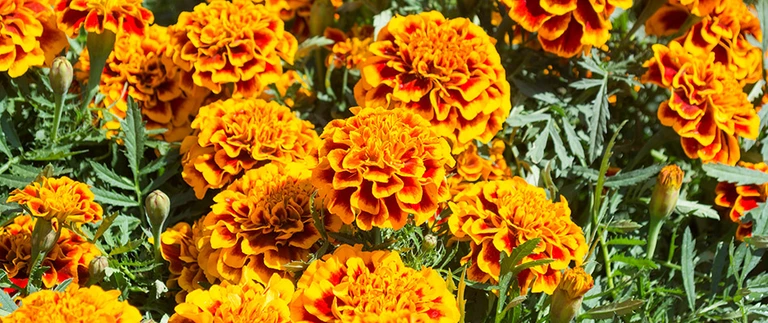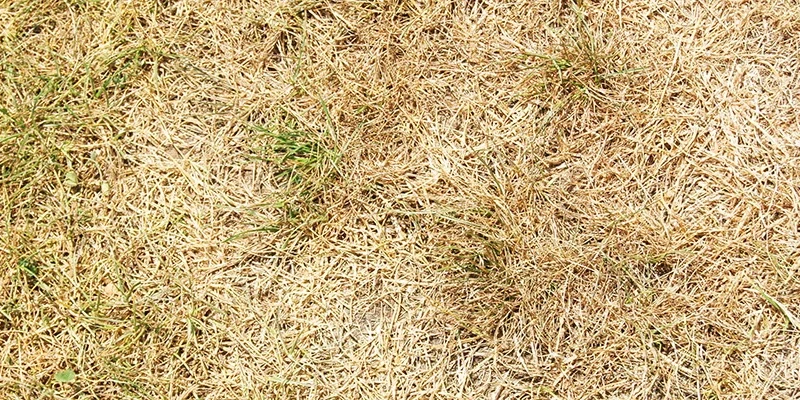A lawn can show brown patches at various times of the year, especially during the summer season. If your yard starts to get less green, it's either from over-fertilization, drought stress, or cutting your grass too short. When your once lush lawn starts to turn brown, you need to act quickly.
At Sprout Lawn & Landscape, we know that when it comes to the health of your grass, several factors come into play. Our full-service packages, including lawn mowing, fertilization, and aeration, ensure that your grass is as green as it should be in Noblesville, Carmel, Westfield, and surrounding areas in Indiana over the summer.
1. Over-fertilization Can Cause Your Grass to Burn
Getting that vibrant green grass on your lawn means adding a boost of fertilizer. However, over-fertilization can have a significant impact on the grass and can cause burning. When you apply excess fertilizer to your grass, it can draw moisture out of the roots and blades, resulting in an unsightly brown shade.
Your lawn is vulnerable to fertilizer burn during a summer drought because the fertilizer becomes more concentrated in the soil. It's advisable to use the recommended amount of fertilizer as instructed. To treat fertilizer burn on your grass, clean up the affected area by flushing it out with your sprinkler with as much water as you need to for at least a week.
Organic fertilizers, such as compost, manure, or seaweed extracts, can improve the soil texture without the risk of burning your grass. Using organic fertilizers may be slow to grow grass, but they reduce the risks of fertilizer burn by gradually releasing the nutrients into the soil instead of all at once. Chemical fertilizers grow the grass much faster but have more chances of burning your grass through excess use.
2. Drought Stress Can Cause Your Grass to Wilt & Brown
Grass reacts to summer's high heat and, because of lack of water and moisture, wilts grass and makes brown patches appear. Prevent drought stress by providing the moisture your lawn needs through consistent watering. Be sure to water your lawn early in the morning so that the grass has a chance to absorb the water before the heat comes in.
To combat drought stress, aerating your lawn can help your grass recover more quickly. If you have warm-season grasses such as Bermudagrass, you can schedule lawn aeration in late spring or early summer. If you have cool-season grasses such as Kentucky bluegrass or perennial ryegrass, you'll probably want to aerate your lawn during the fall. Using an aerator tool creates holes in the soil, serving as a channel for water and air to provide the grass needs moisture and nutrients.
3. Cutting Lawn Too Short Can Expose Your Grass To Weeds & Insects
Cutting the lawn too short weakens the grass, leaves bare brown spots, and exposes the soil to weed and insect invasions. If you mow your grass too low, it causes stress to each blade of grass, providing less surface area to work on its leaf and root development. Short grass also makes the entire lawn susceptible to summer heat stress, creating discolored-looking grass.
Longer grass blades result in more robust and healthier root growth. The grass is better able to withstand stresses such as drought, heat, and diseases. Longer grass also creates denser lawns and has the effect of concealing patchy areas. With proper mowing, you can groom your lawn into healthier, greener, and more drought-tolerant grass.
Avoid mowing too low by only cutting off the top 1/3 of your grass blades.
Protect your lawn from turning brown by hiring a professional lawn company. Call (317) 900-7151 today!
At Sprout Lawn & Landscape, our team makes sure these issues don't happen to your grass! We have the expertise and experience to keep your lawn lush, thick, and healthy by proper fertilization, aeration, and lawn mowing. Our company caters to residential and commercial clients in Noblesville, Carmel, Westfield, and nearby Indiana communities.
Get started turning your grass from brown to green with professional lawn mowing, fertilizing, weed control, and aeration! Schedule our services by calling us at (317) 900-7151 today.







